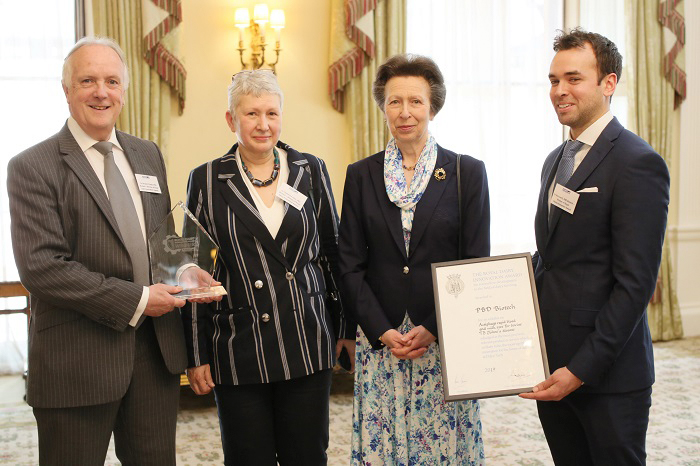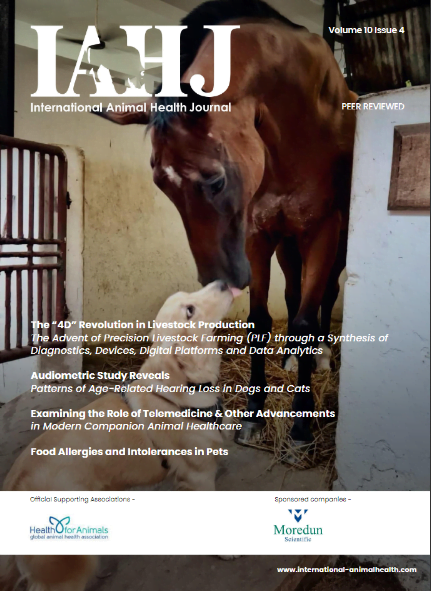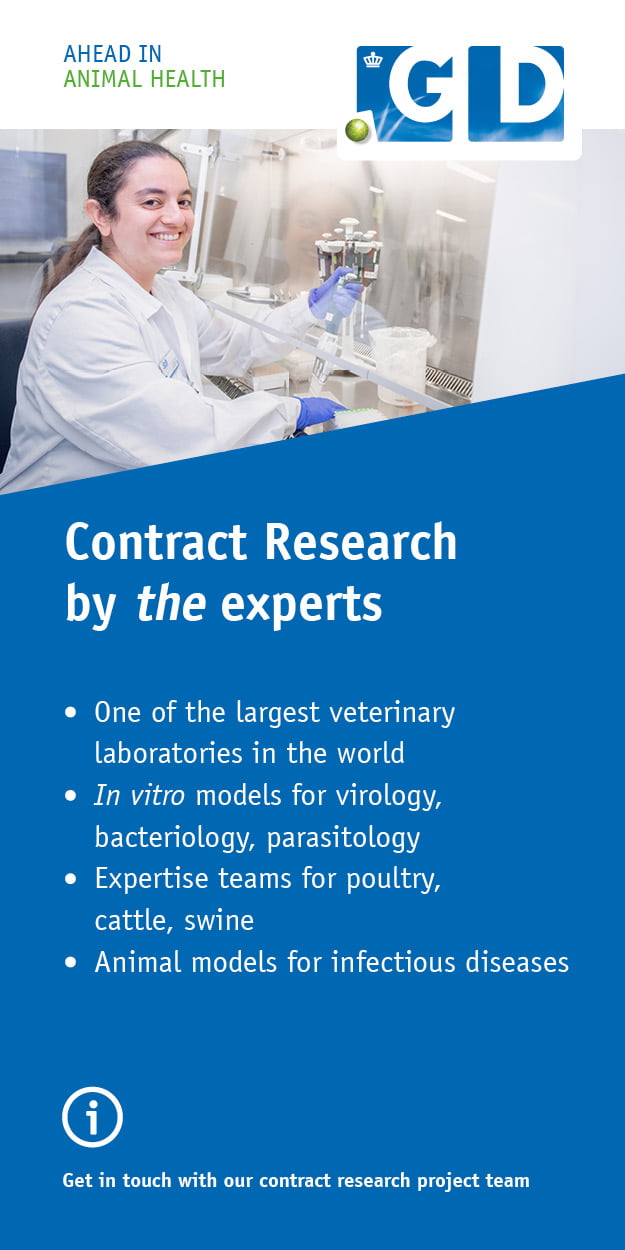A bTB test co-created by RVC academic Ben Swift has won the Royal Dairy Innovation Award.

The test, which enables the rapid identification of cattle infected with mycobacteria, was first developed by Dr Swift as part of his PhD studies at the University of Nottingham School of Veterinary Medicine and Science. Since joining the RVC, he has continued to evolve the technology, working alongside academics at his former university.
Dr Swift and co-project lead Cath Rees, an expert in microbiology at the University of Nottingham School of Biosciences, were presented with the award by The Princess Royal at a special ceremony at Buckingham Palace.
Recognising research
The Royal Dairy Innovation Award recognises research and development in the field of dairy farming, and is awarded for the most practical, relevant product or service that is, or is likely to be, the most significant innovation for the future.
The winning test is able to detect mycobacteria in the blood and milk of cattle within six hours using a bacteriophage-based technique. As a result, cattle affected by Mycobacterium bovis, the bacteria that causes bTB, can be diagnosed for the disease quicker – allowing for more effective disease management in herds.
Additionally, the test has been used to effectively detect Johne’s disease – another endemic illness that affects dairy cattle – in newborn calves for the first time. By being able to catch the disease at an early stage, this test can help further with controlling infections in dairy herds.
Test
The test is now licensed to spin-out company PBD Biotech and marketed as Actiphage. It can also be used as a highly sensitive quality assurance test in milk and dairy products.
Dr Swift, a research fellow in antimicrobial resistance, said: “It is really exciting to be recognised with this award. Translating technology from the bench to be used in real-world scenarios is a great thing and really shows the impact of our research.
“Hopefully, this will help manage two extremely difficult diseases in the UK and worldwide.”












